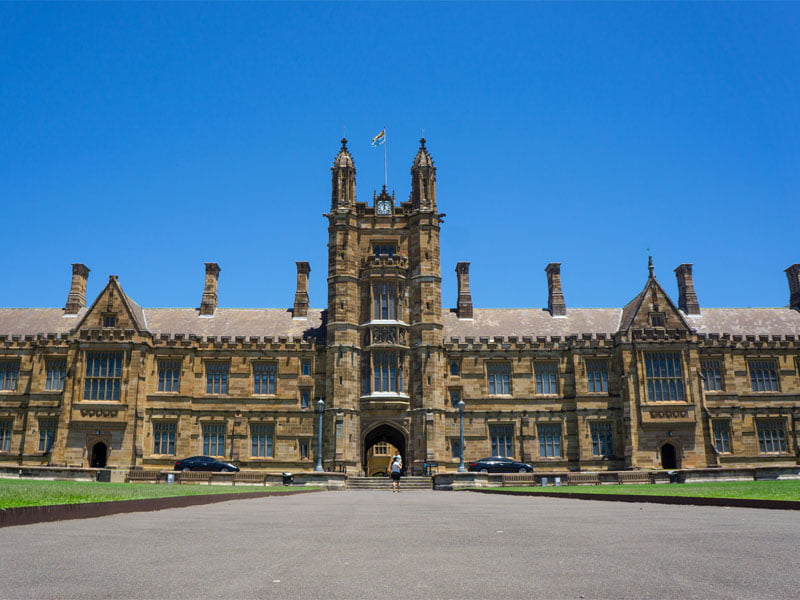University of Sydney vice-chancellor Mark Scott is “dismayed” at the acting education minister’s decision to block two of the institution’s research projects from receiving funding, despite the proposals being recommended by the independent research funding agency.
The University of Sydney received more than $30 million from the Australian Research Council (ARC) to fund 67 research Discovery Projects in the latest round announced late last month, the most of any university in the country.
On Tuesday, Professor Scott congratulated the successful applicants but joined the wider research community in expressing deep concerns about another incident of “political interference” in research funding by the Coalition government.

Two University of Sydney projects were among the six approved by the ARC but blocked at the last minute by acting Education minister Stuart Robert, who revealed the decision on Christmas Eve after an unprecedented delay in announcing recipients.
“While we celebrate our successes, we are also dismayed for our researchers who submitted grant applications that were recommended for funding through a rigorous peer review process only to be cancelled at the final stage by the acting minister for education,” Professor Scott said.
“This action must be considered political interference and unacceptable for a process that relies on peer review to ensure academic integrity. We are calling for legislation to ensure the ARC can operate free from any such political interference in future.”
The latest intervention by Mr Robert – justified by the minister’s own assessment the six projects are a waste of taxpayers’ money not in the “national interest” – sparked fears of a slippery slope of political interference.
University of Sydney deputy vice chancellor Professor Duncan Ivison said he believed the intervention is political interference, and the announcement on Christmas Eve was “disrespectful” to applicants.
“It’s not a slippery slope. We’ve already slid down that hill,” Professor Ivison told InnovationAus.
“This is the third time it’s happened. [Including] twice in the last three years.”
Brendan Nelson, the Education minister under Prime Minister John Howard, vetoed funding for several ARC recommended in the early 2000s. The power wasn’t exercised again until 2018, when then-Education minister Simon Birmingham blocked funding for 11 recommended projects worth $4.2 million.
Backlash to Birmingham’s intervention led to Dan Tehan introducing a national interest test for applications when he took over the portfolio later that year. Mr Tehan also blocked 18 recommended projects in 2020 on national security grounds before eventually clearing 13 and vetoing five.
The national interest test is being used despite a pre-existing and ongoing requirement that applicants demonstrate the national benefits of their projects. The new test has, however, introduced a new way for minister to unilaterally reject otherwise approved projects without explanation.
Professor Ivison warned against the introduction of a national interest test in 2018, and said its latest application is clearly an act of political interference in the funding process.
“I think this has become very politicised,” he said.
“The minister hasn’t given any other reason other than he didn’t feel it was in the national interest. What does that mean? According to whom? On what basis? What are the criteria?”
Asked to elaborate on the reasoning for his decision to block the six projects, Mr Robert’s office referred to his original comments from Christmas Eve, when he said the six projects “do not demonstrate value for taxpayers’ money nor contribute to the national interest”.
Several other research and university groups have approached the minister for more details but are yet to receive a response.
The lack of explanation has angered universities and Australia’s most eminent researchers, with more than 60 signing an open letter on Tuesday decrying the “political and short-sighted” intervention and 1,400 more academics signing a similar online petition.
Professor Ivison said it is past time to remove the minister’s power to veto projects without explanation, warning it puts Australia out of step with leading research nations.
“Look around the world. In the countries that are often held up as exemplars of research excellence by the government, whether it’s the US or Europe or Canada, none of them have these tools that allow a minister intervene after expert panels have agreed on the allocation of research funding in an appropriate transparent process,” he said.
Professor Ivison is supportive of governments setting research priority areas they determine are in the national interest as well as the renewed focus on translating and commercialising research. But it must not come at the expense discovery research – which has declined in the last decade in Australia – or the integrity of the funding process, he said.
“There’s a complex interdependency between basic and applied research, like an ecology between them. And the risk is that current focus on translational and commercialising research will neglect the complex interdependency,” Professor Ivison said.
“The worst-case scenario is that it becomes highly politicised. So you have ministers trying to decide what kind of research is really in the national interest and what isn’t. It’s not the job of the minister. The job of the ministers to set the ground rules, set the framework identify some level priorities and then let communities drive research excellence.”
Professor Ivison stressed the University of Sydney would continue to support its researchers and would not be backing away from humanities research projects, but the continued vetoing of humanities projects does send a discouraging message to researchers.
“It’s probably never been more important to have our best humanities researchers engaging with some of the exact projects that were cancelled by the minister,” he said.
“But as I said, it’s a very discouraging signal to the research community if they feel there’s always a chance that the minister will still cancel their project despite it getting through a very rigorous process.”
Do you know more? Contact James Riley via Email.

